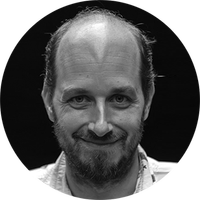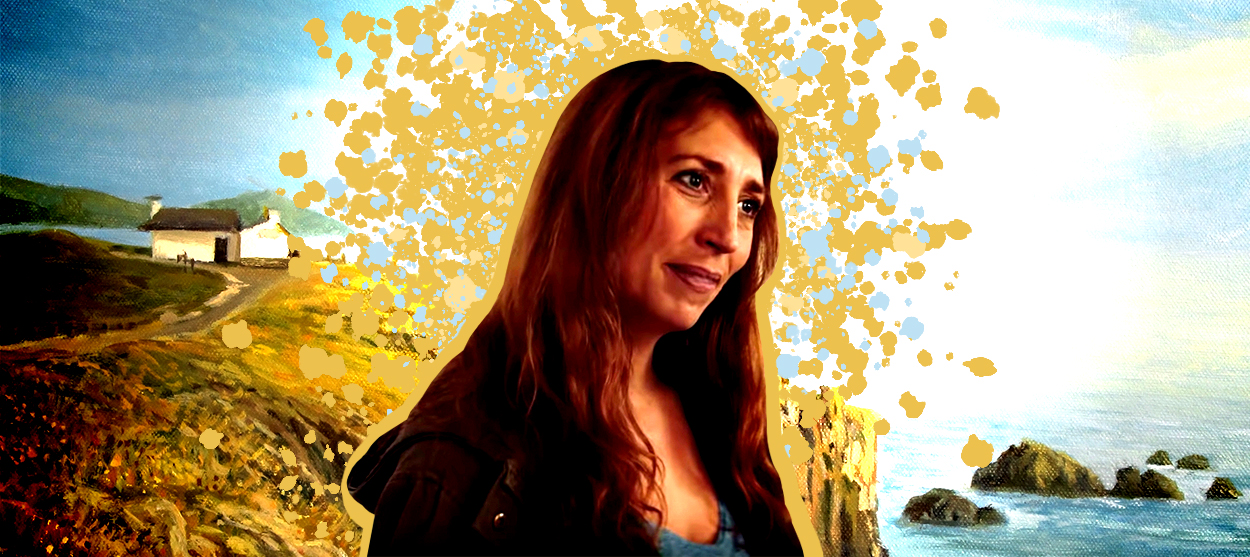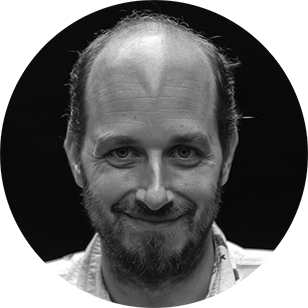Back to Life understands the secret can be more powerful than the reveal
Why the new drama defies comparisons to shows like Fleabag and Broadchurch


A free daily email with the biggest news stories of the day – and the best features from TheWeek.com
You are now subscribed
Your newsletter sign-up was successful
It's too easy to compare Back to Life to BBC shows like Fleabag or Broadchurch, or to American shows like Orange is the New Black or Big Little Lies. Now on Showtime, Back to Life was produced by some of the same people who made Fleabag and features a similarly battered yet resilient protagonist. It's set in a remote coastal community like Broadchurch's "Jurassic Coast," with the same buried-crime ambience (not to mention the availability of cliffs off which characters can be conveniently pushed). Like OITNB, it's concerned with the specific and more mundane details of female incarceration — albeit mostly the returning-to-society part of it — and if we want to throw Big Little Lies into the mix, Back to Life also mirrors its protagonist's troubled-yet-placid demeanor in a variety of sublimely cool and gray shots of the ocean, deep, silent, and vast. It also features an impulsive shove that (a little conveniently) becomes a fatal fall.
I find myself wanting to compare Back to Life to better-known shows because it feels so small and easy to overlook, destined to be seen and forgotten (or maybe a little too quiet and gentle to break through at all). Like its protagonist, it's shy, timid, and tentative. These limited-run BBC dramas tend to fly under the U.S. market's radar — when they get released here at all — and I want to advocate for it, speak up for this one in particular. But the best thing about the show might be that it's actually a lot smaller and humbler than these puzzle-box dramas; it might be that comparing it to the cacophonous genius of Phoebe Waller-Bridge's Fleabag only emphasizes the mildness of this show's gentle and humane ambitions. If detective stories fetishize the revealed secret — withholding the truth of who did it until a big climactic reveal — Back to Life is about how discovering the truth somehow doesn't actually change anything important. Instead, it's a show built on a nesting series of narrative anti-climaxes, of secrets that, when revealed, are somehow never quite the revelations that they had promised to be. Hidden secrets fester, but the big revelation... dissipates.
This is not to say that it's easy to tell the truth, of course. It's exactly the point that it's extremely difficult. But in a show about an ex-con returning to the community from which she had been cast out, 18 years ago, secrets have a power that even the guilty truth does not. And the show initially keeps its secrets too, leaving the viewer in a suspicious suspense as to what exactly it was that Miri did; we get glimpses, as she leaves prison and attempts to find employment and re-connect with old friends ("You can clean offices in hell" she is told by one potential employer, and her old boyfriend impulsively slams the door in her face). Even the town doesn't seem clear on the specifics of what she did, or what they think she did; after 18 years, the details of her crime are fuzzy, congealed into the fact that she is a "psycho bitch," a phrase someone paints on her front gate. But because she wants to move on — because she wants to forget the past and pick up her life where it was — she tries to ignore the buzz and hum of rumor and gossip.
The Week
Escape your echo chamber. Get the facts behind the news, plus analysis from multiple perspectives.

Sign up for The Week's Free Newsletters
From our morning news briefing to a weekly Good News Newsletter, get the best of The Week delivered directly to your inbox.
From our morning news briefing to a weekly Good News Newsletter, get the best of The Week delivered directly to your inbox.
Rather than talk about what happened, correct or explain or apologize, she simply takes it on the chin. And so the stories about her proliferate and metastasize: when someone throws a brick at her through a window, the story becomes that she smashed the window. Because it's her return that has stirred up all the trouble, apparently, the community blames the abuse and attacks on her... on her. Secrets have power because, in the absence of facts, they empower people's laziest and cruelest and most self-serving impulses.
In the show's first scene, we see her struggle to cut her own hair before a job interview, with disastrous results to her bangs. Any hope she had of fitting in dissipates, even as her bedroom — a time capsule of her teenage years — testifies to a fervent desire to do exactly this. Her self-presentation is out of time and, per current fashions, almost spectacularly wrong. But her gentle, hopeful, ungainly persistence is the show's secret power, which Daisy Haggard — who both created the show and stars in it — seems born to play. At the interview, she is asked about the gaps on her resume — a resume that is mostly gaps — and at first she stammers, lies, and tries to brazen it out. It's only when she gracelessly tells the truth that she gets the job. But however strange she looks — and her hair and dress will be wonderfully unflattering throughout — she decides early on to stop trying to catch up. She rejects her mother's fashion advice, wears her bad bangs without embarrassment or apology.
The job turns out not to be the important thing. The point was that the secret nourished a suspicion which the truth disarms: the owner of a gentrifying chip shop, it turns out, can sympathize with someone who is hated by an entire town. However humiliating and painful it is for Miri to admit what she spent 18 years in jail for doing, this becomes a pattern: at each stage of her re-integration, what brings her "back to life" is a willingness to tell the truth about who she is, what she's done. This turns out not to be what makes her unique in the community. It's what makes her exactly like everyone else. And her distance from the world she's trying to rejoin has in some ways armed her to strip others down too: an uncomfortable drive with her cheating, self-sufficient mother, whose chilly silences and private judgments make any real connection unthinkable, turns into something just a little weirder when they get lost and end up needing help. The shift can't quite be called a breakthrough, and it doesn't map exactly onto the specific problems they have, but the scene portrays a crack in a relationship that seemed sealed shut. Those cracks ramify: when the mother returns home a little disheveled, she and her husband connect in a slightly different way.
As is usually the case in these idyllic seaside dramas, it will turn out that the crime at the center of things is only one of many secrets the community is carefully keeping. There are hidden love affairs, buried shames, and deep wells of scrupulously-denied sadness; when Miri returns home to live with her parents, their marriage turns out to be a tangle of unspoken grievances and nursed resentments. Yet as the truth comes out — and Miri's father tells her, sadly, the truth always comes out eventually — the real revelation is that revelations are overrated. The secret is never as sensational or as dangerous as it had seemed, and sadness, love, and impulsive mistakes are just variations on the same basic, human stories. While people keep secrets to protect the status quo and keep their worlds from changing, the real truth they're hiding is that their reality had already changed, that the past they're clinging to is already long gone. A little push is all it takes to reveal it.
A free daily email with the biggest news stories of the day – and the best features from TheWeek.com
Want more essential commentary and analysis like this delivered straight to your inbox? Sign up for The Week's "Today's best articles" newsletter here.
Aaron Bady is a founding editor at Popula. He was an editor at The New Inquiry and his writing has appeared in The New Yorker, The New Republic, The Nation, Pacific Standard, The Los Angeles Review of Books, and elsewhere. He lives in Oakland, California.
